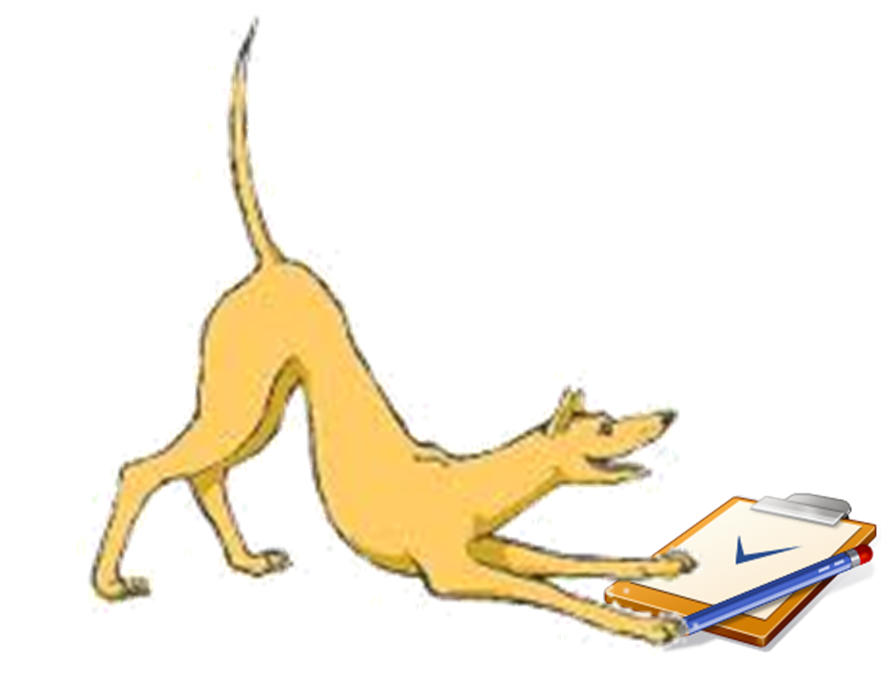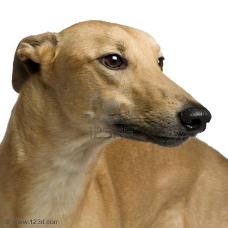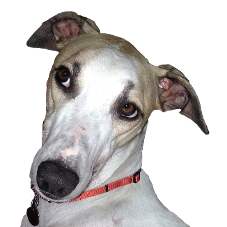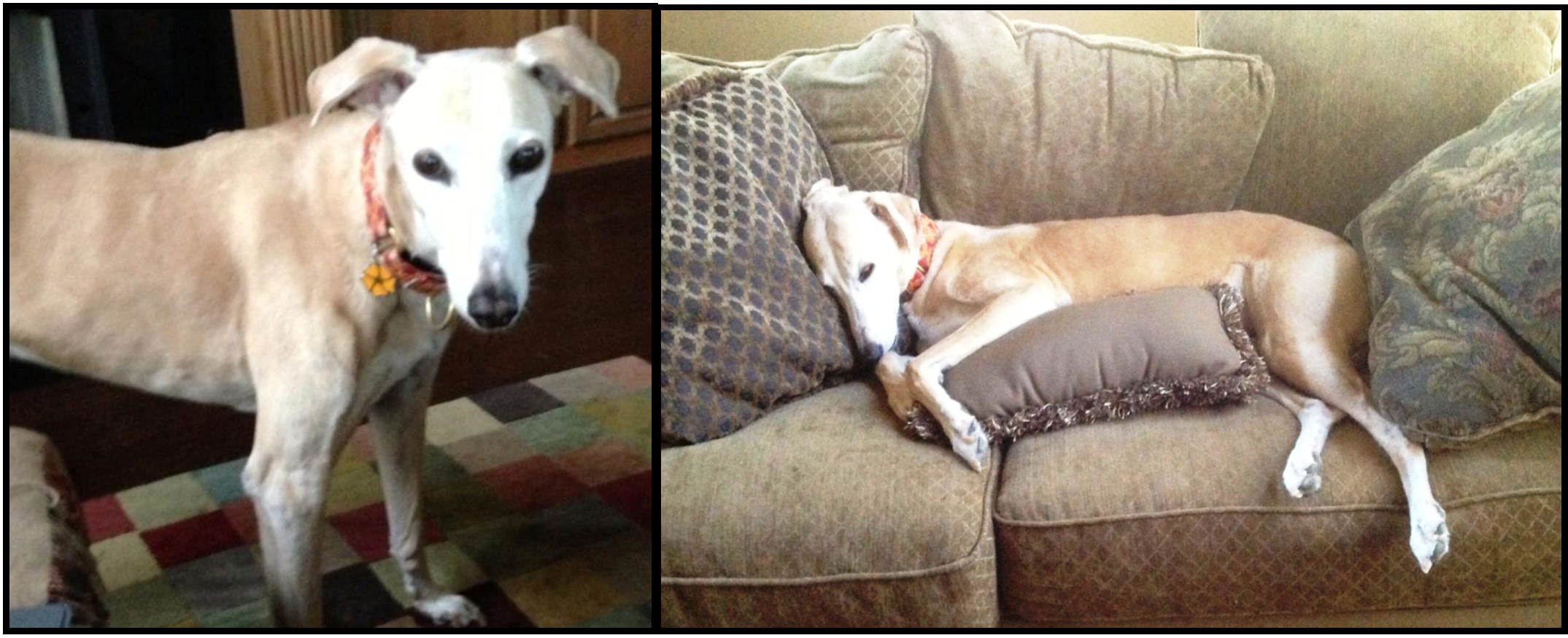Did you know...


As you attempt to decode your dog’s body language, take the situation into account. In one context, a dog licking his lips may be expressing fear or anxiety; in another context, the same dog may lick his lips in anticipation of a treat. And some dogs lick their lips when they feel nauseous. Consider your dog’s overall behavior, not just one motion or gesture, when you assess his stress level. Be particularly aware of behavior that seems out of character for your dog.
If your dog exhibits signs that could be signaling stress or anxiety, start with a visit to the veterinarian. Your vet can investigate medical issues that may be contributing to changes in your dog’s behavior.
That dogs do not hug. Hugging is something humans do and children in particular. It seems that the first thing a child wants to do when meeting a Greyhound is to hug him around the neck. That is a foreign concept to a Greyhound. Other dogs do not hug them around the neck and if another dog puts his legs around another dog’s neck, that might be considered as an aggressive move and not well tolerated. They like to be petted or rubbed but not necessarily confined by a hug.
Consider the life of a track or farm Greyhound: They are kept in dog runs or crates separated from other dogs by wire. No one invades their personal space when they are in their crates or runs. They can sleep without fear of being attacked (which in a dog’s mind may be the same thing as being touched when sleeping). Therefore, consider what a Greyhound’s reaction might be when touched while he is asleep on his bed. Such a move will startle the dog and the reaction may be to jump up or snap.
Greyhounds are fed in their crates. They are not used to
being bothered while eating and some consider that an aggressive move by a
human. Children should be cautioned to stay away from a dog while he is
eating.
Before joining an
adoption group, Greyhounds are generally not shown the type of affection one
would show a pet that is considered a family member. Remember a Greyhound
has a prior history as a track or farm dog, Adults and children alike should
slowly get to know their new Greyhound. Give the dog time to adjust to a
new environment. A good rule of thumb is to let a new
Greyhound approach you and give affection while the Greyhound is
standing. Be patient
Greyhounds love to please. Enroll your Greyhound in an obedience class or agility course and have some summer fun.
After completing an obedience class your Greyhound can continue with Canine Good Citizen classes. Your Greyhound may make a good therapy dog. Give him/her a job.
When enrolling your Greyhound in an obedience class, remember that different breeds learn differently. Look for an all-greyhound obedience class. Check out Dancing Dogs and What a Great Dog in North Texas area.
Behaviorist Patricia McConnell observed that when it comes to dogs and people, “play isn’t what makes our relationship with each other better, play is what creates the relationship in the first place.” Some say we train too much and play to little. When playing with your dog, you and your dog learn the most important rules of social interaction: mutual trust, accepting the limitations of the other individual and dealing fairly with each other.
Play develops trust and increases the degree and amount of attention your dog will pay to you (especially if you let your dog win occasionally). It also develops communication. Dogs will play longer with humans than with other dogs. They are less competitive and will both present and surrender toys to humans more frequently.
Dogs in multi-dog households are more (rather than less) interested in playing with humans. Dogs that play rough and tumble games with their humans have fewer problems with separation anxiety and are more self-confident.
They call it “play” because it is not goal oriented. Try not to focus on winning or breaking records. Just enjoy the time and keep it positive.
Check the Internet for dog-friendly hotels throughout the country as well as outdoor adventures you and your Greyhound can take together. Take a road trip with your Greyhound.




Texas Adopt a Greyhound Society, Inc. ~ P.O. Box 703782 ~ Dallas, TX 75370 214-368-TAGS(8247)